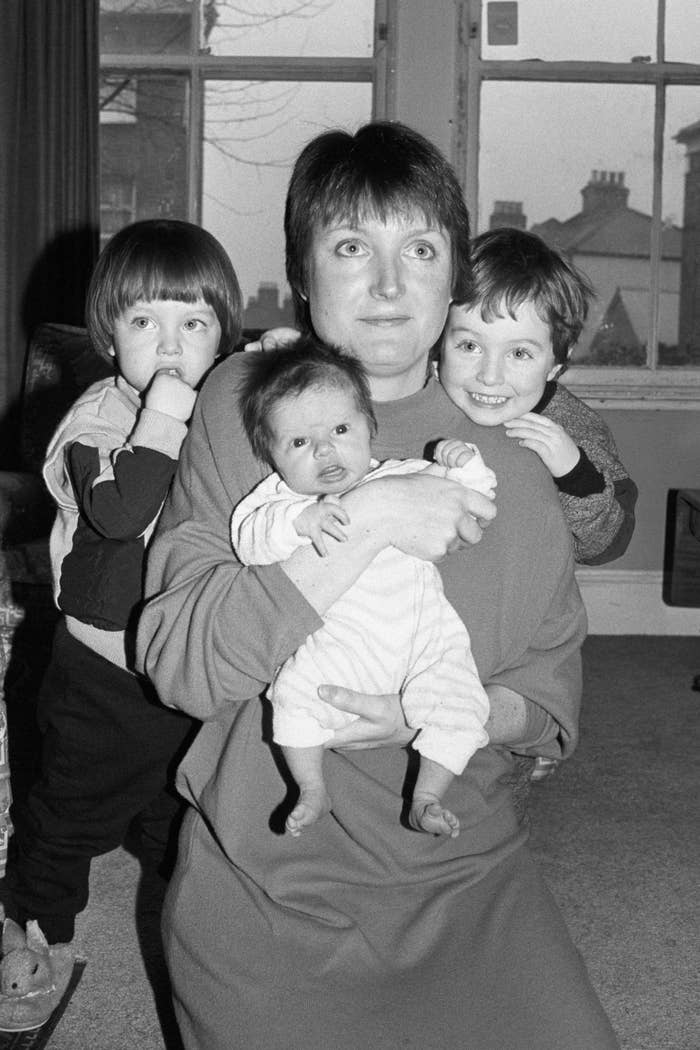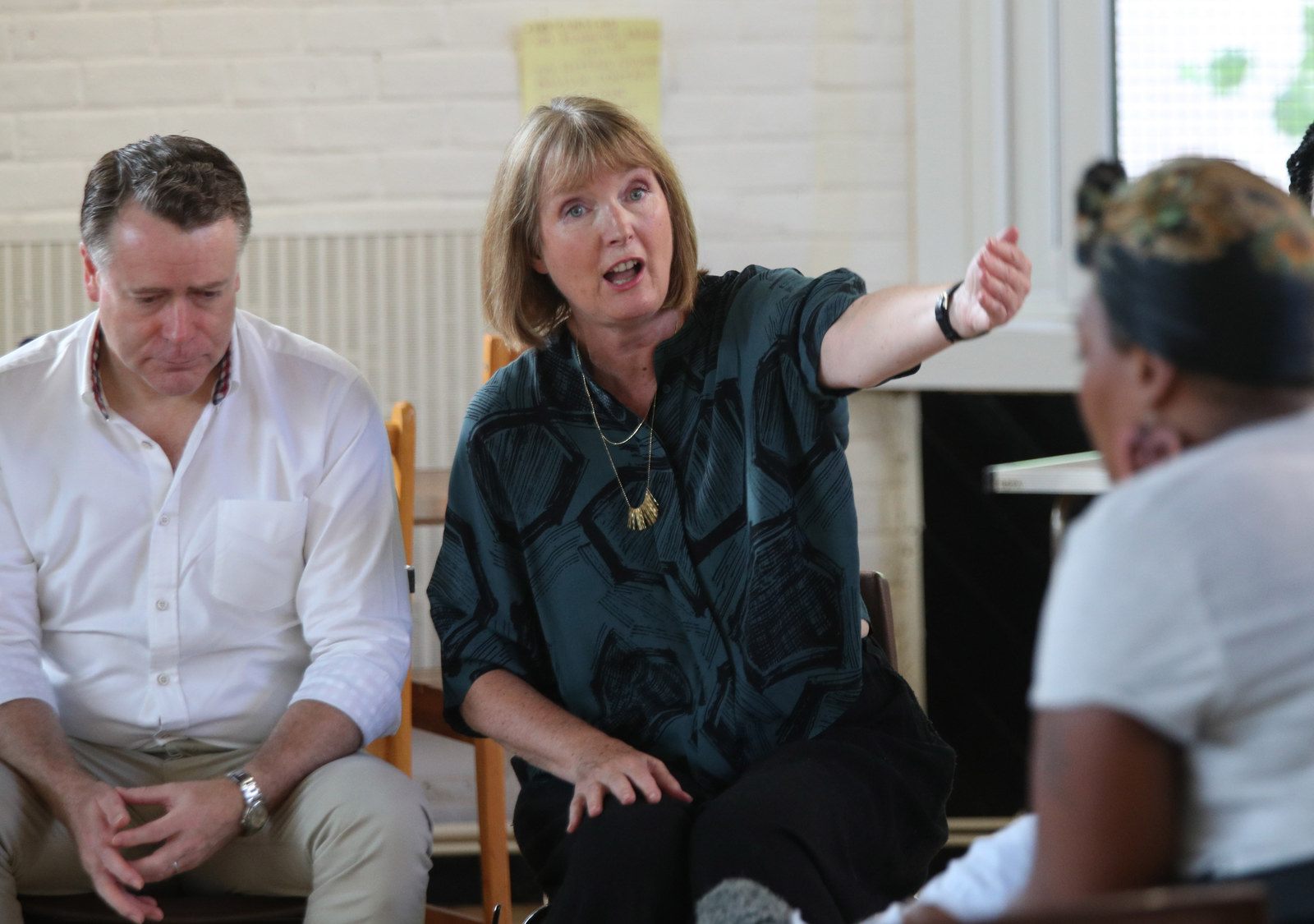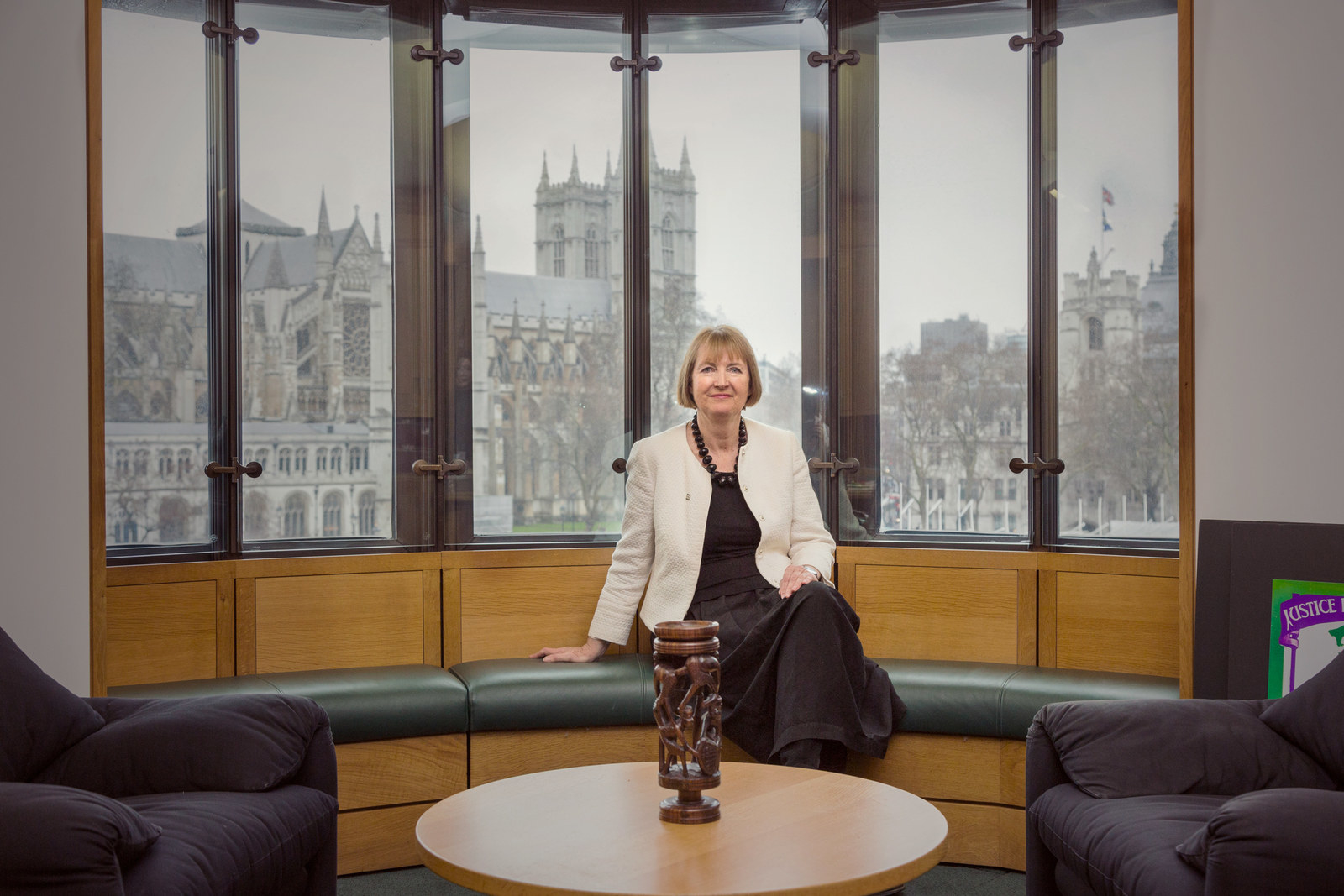
Harriet Harman is sitting in the sunshine, sunglasses on, talking about how she accidentally invented the term “mother of the House”. She was acting leader of the opposition at the time, as Ed Miliband had just stood down after the 2015 election, and suddenly found herself at the despatch box of the House of Commons, having to come up with a speech off the top of her head to mark John Bercow's reelection as Speaker.
As tradition dictates, David Cameron, then prime minister, had been congratulating Labour’s Gerald Kaufman on becoming “father of the House” — a term long used for the longest continuously serving MP.
Harman stood up to offer her own tribute but added: “To prevent us all from falling headlong into patriarchy, perhaps I may remind everyone that there is a mother of the House — and it is me!”
Indeed Harman holds the record as the longest ever continuously serving woman MP, this year celebrating her 36th year in parliament. “It only occurred to me as I was saying it that it was me,” she recalls. “I chortled away to myself thinking how amusing this was, and no one really took any notice and that was fine.”
But what started as “a joke” began to be taken seriously by MPs, Harman says, and now she’s trying to “make it a thing”.
First on the agenda has been the campaign for proxy voting for new parent MPs who want to stay at home with their babies but take part in Commons votes (an issue brought into stark relief by last month’s pairing row).
And next up is organising the first-ever “women MPs of the world” conference in Westminster for parliamentarians from over 90 countries. The women will gather in the House of Commons chamber, with breakout sessions in committee rooms, for one day during the November recess. The idea is to share policy ideas and exchange thoughts on how they can make their case effectively in a male-dominated world. Harman hopes Theresa May will attend.

Speaking for the first time about the summit, Harman says one purpose is to kickstart a discussion about how women politicians can deal with “cultural pushback” that can lead to threats and violence.
“I had death threats when I was a very young MP with young children [and] I thought I don’t want my constituents to think that if they have a woman MP they have somebody who’s timid, feeling threatened, unable to do her job because she’s looking over her shoulder — I thought I had to tough it out,” she says.
“But actually I think that’s the wrong thing. … You have to name it and challenge it. That’s not a weak thing to do; that’s a strong thing to do. … It’s strong to say I don’t have to put up with death threats or abuse, I am going to call the police, I am entitled to protection from the people who would stop me doing my job, which is undemocratic.”
The ultimate aim of the gathering is simple, she says. “We have to find the right way to effectively do our job and challenge all these cultural obstacles. It’s not about how we get in — we’re all in there — but how do we do it.”
BuzzFeed News is catching up with Harman over breakfast in her south London constituency, just a few weeks after she has become a grandmother for the first time. She and her husband, Jack Dromey, also a Labour MP, have been reluctant to go on holiday this summer, ready to help out with any baby emergencies — but she says her daughter, Amy, principal bassoonist for the English National Opera, is doing just fine.
Harman had her own three babies in quick succession after first becoming MP for Peckham (later Camberwell and Peckham) in 1982, at the age of 32. She says she is “very unusual” among women MPs in that she secured a safe seat at a young age. “There would never be a woman as father of the house because the longest-serving is always going to be a man,” she says.
“That’s mostly because most women don’t come in until later on after they’ve had their children, and it takes them longer than men to get in. Also there’s more of a turnover of women MPs — women MPs last a third less than men because they’re in more marginal seats. … The men get the plum seats, the women get the marginal seats.”
Harman has been acting Labour leader for two short periods — first when Gordon Brown stood down and then when Miliband resigned. But she is best known as the party’s deputy leader, serving between 2007 and 2015, which she juggled with a series of frontbench roles including Commons leader, equalities minister, and shadow culture secretary.
Now though, she says, it’s time for men to aspire to be deputy leader and allow a women-only contest for the Labour leadership. Is she disappointed that her party has never elected a woman leader? “It is mortifyingly embarrassing,” she says.
“What I’m arguing now is that, and I don’t think there’s going to be a leadership election anytime soon, but we just have to have a woman next time. We should not consider the men. We should only consider the women, and we have got lots of good women.
“The trouble is if we don’t make that decision we will end up by default with a man again. Just because we do. So I hope all the men in the party who consider themselves leadership material, of which there are many, will put themselves forward for deputy and it will not be legitimate to put themselves forward for leader, because there must be a woman this time.
“The only way to guarantee that is if there’s no men in the competition. We cannot say to the generations of women in the party ‘none of you have been good enough to lead the party’, because that’s not true — leave aside the embarrassment that the Tories have had not one but two [Margaret Thatcher and Theresa May].
“We are the party of women and equality. We’ve always led on these issues. We cannot continue to have male hegemony in the party.”
Harman laughs that she can make the argument because “I’m absolutely not in the running — nobody’s going to think I’m feathering my own nest.” But she doesn't deny that she has her eye on another top job: that of Commons Speaker when Bercow steps down.
“The thing is that there isn’t a vacancy at the moment,” she says slowly. “I very much support the work that Speaker Bercow has done.
“When you think of how he’s made parliament so much more relevant by having all these urgent questions, it used to be the case that there’d be a raging debate in the news and the only place it wasn’t being discussed was parliament, because the government doesn’t want to discuss things when it has a problem.
“[Now] we’re never not discussing the political topic of the day, so I very much support him. And a lot of the things people are against him for, I am in favour of him for, like the crèche, proxy voting.
“As and when he goes, in his own time, I shall have to consider my position. But you don’t start campaigning on something or declare yourself a candidate for an election there isn’t, any more than I would welcome people here suddenly saying ‘I’m going to be the next MP for Camberwell and Peckham.’ I wouldn’t do anything to undermine him.”

With just over a week to go before parliament returns from the long summer recess, Harman is trying to make sure plans for “baby leave” are finally put into place.
MPs are not entitled to any formal system of maternity or paternity leave so are forced to rely on the good will of party whips in order to skip votes, which means their constituency’s voice is not recorded.
Harman, along with a large number of MPs from all sides, wants to see proxy voting brought in to allow new mums and dads to nominate another MP to cast a vote for them on their behalf while they look after their babies.
But despite the backing of the Speaker and the procedure committee, the issue has been kicked into the long grass. Harman says she expects parliament to make a decision on the matter in September or October.
“There will be an effective motion, because either the government will do it and then we’ll amend it to what we want ... or we’ll do it,” she says.
“It will be make-your-mind-up time. MPs will be mindful of the fact that there will be an outcry against any MP who argues against proxy voting, and therefore those who have been muttering behind their hands I think will just keep muttering, and I don’t think it will be likely in any numbers that any will vote against it.
“You’re elected to vote and your constituency has a right to your vote. ... Your constituency shouldn’t lose your voice just because of the demographic inevitability of young women, and we need young women in parliament.”
The issue was highlighted by the “pairing scandal” in July, when the Conservatives admitted the government chief whip had ordered MPs to break pairing deals in knife-edge votes on Brexit.
The instructions were apparently not meant for “maternity pairs” — but a “mistake” meant that Tory chair Brandon Lewis took part in two crunch votes despite being paired with Liberal Democrat MP Jo Swinson, who was at home with a 2-week-old baby.
Under the pairing system, whips match up MPs of opposing sides who then do not vote, to effectively cancel each other out.
Harman says: “It just became a very vivid example and another reason and justification for getting on with it. I think Jo’s right to be vociferously protesting about it. If people want to carry on pairing they should be able to. We don’t want to ban pairing. But it’s about giving women who don’t want to pair a choice.”

Maternity rights for MPs will no doubt be among the issues raised at the women's summit in November. “The fact is that international networking by men is very well developed — very well developed, happening in all sorts of nice places — but international networking by women is very underdeveloped,” she says.
“There’s something about a woman MP talking to another woman MP that is very unique. We’re all in the same boat, and so I think it’s going to be really fascinating.”
Harman says a group of Afghan and Pakistani women MPs recently told her they were being “culturally excluded” from political decision-making because everything was decided behind closed doors in their male colleagues’ houses, and it was “socially unacceptable” for them to attend such meetings.
“I said, ‘You’ve got to expose and delegitimise this,’” Harman says. “‘You’ve got to say it’s happening and say it’s undermining democracy because it’s disempowering you and you should be on equal terms.’
“Every culture has got its own similar problems. I mean, we’ve got a situation where men meet up and decide things without women there. … It’s just the way the networks work. So the question is how you identify what is holding you back, how you challenge it, and how you change it.”
Harman wants the issue of proxy leave sewn up before crucial votes in parliament on Brexit in the autumn.
“I think the real challenge is how on earth we rescue the Brexit situation,” she says. “That is the number one challenge, and the difficulty is that there is no majority in the House for a hard Brexit, no majority in the House for no deal, and there is a lot of scepticism on all sides for the Chequers deal.
“The prime minister will probably come back [from Brussels] with Chequers-minus. ... Therefore, how do you get from an agreement that something’s wrong to an agreement that everyone can rally around?”
Harman believes parliament needs to “rescue the situation”, but there is currently a “stalemate” in the House of Commons that seems impossible to solve.
So should there be a second public referendum on whether Britain leaves the EU, as some Labour MPs believe? “It very much depends on what she [May] comes back with,” Harman says.
“All these things are tactical, depending on where things have got to. The best thing would be to get a really good deal that keeps us as close as possible to the customs union and doesn’t turn Kent into a lorry park, doesn’t set up a hard border in Northern Ireland, and enables the economy not to tank — in which case we won’t need a second referendum, but we’ll just see.”
